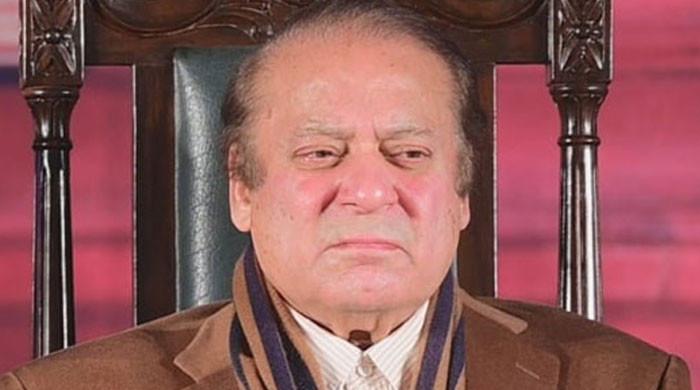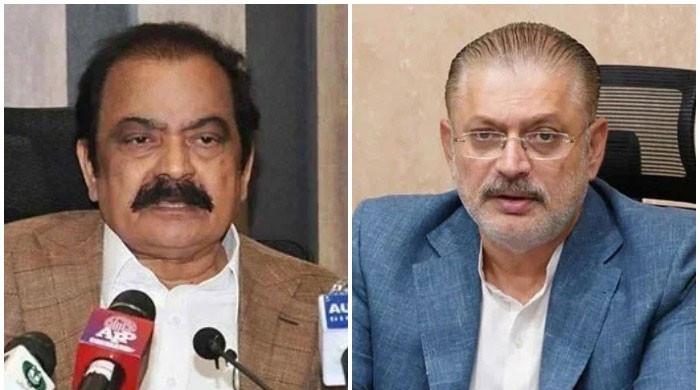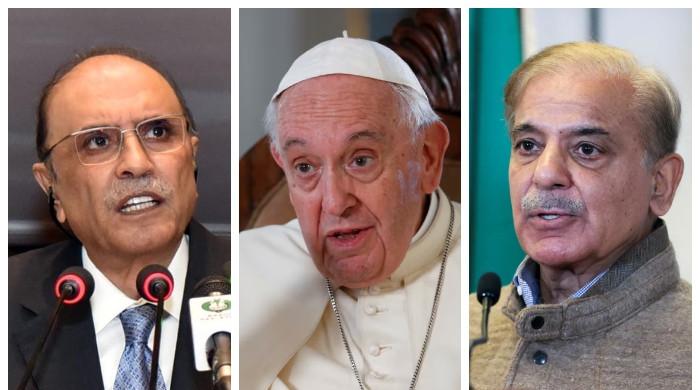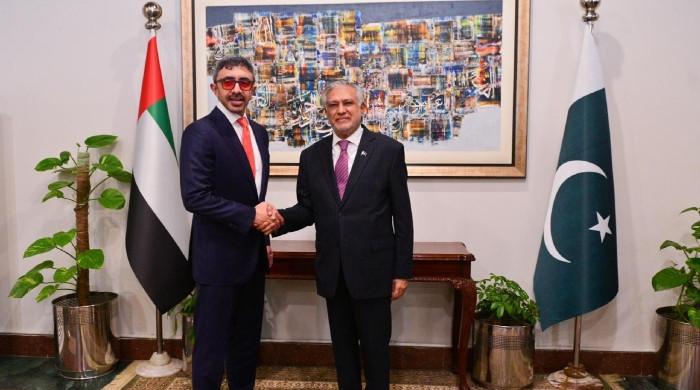Parliament's joint sitting adopts resolution for simultaneous elections of all assemblies
Holding separate elections in Punjab will impact outcome of general elections, resolution says
April 10, 2023
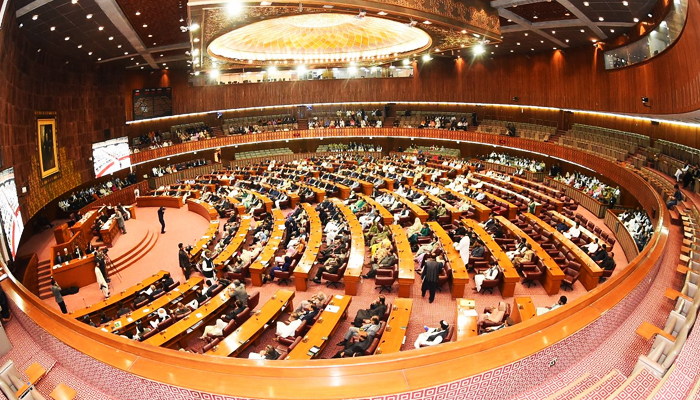
- Seperate elections will impact outcome of general polls: resolution.
- Simultaneous polls across the country to "strengthen federation".
- PM Shehbaz Sharif has rejected PTI's demand to stage early polls.
The parliament's joint sitting Monday adopted a resolution stressing the holding of general elections of the national and the provincial assemblies simultaneously to "strengthen the federation".
Federal Minister for Parliamentary Affairs Murtaza Javed Abbasi and Senator Kamran Murtaza moved two identical resolutions aimed to promote political stability and foster unity among the provinces.
The resolutions argued that organising general elections of all the assemblies simultaneously. The resolutions emphasised the significance of appointing neutral caretaker set-ups to ensure impartiality and fairness during the elections.
The resolutions also argued that holding separate elections in Punjab, the largest federating unit with over 50% of the National Assembly seats, would inevitably impact the outcome of general elections to the National Assembly seats in Punjab.
Therefore, it could potentially marginalise the smaller provinces’ role in the federation, the resolutions noted.
Amid the session, Pakistan Tehreek-e-Insaf (PTI) senators staged a token walkout from the house to register their protest. "Hold elections and save the country," the PTI senators chanted.
The development comes after a three-member bench of the Supreme Court unanimously declared the Election Commission of Pakistan's (ECP) order to delay the election in Punjab and Khyber Pakhtunkhwa "unconstitutional".
The three-member bench — led by Chief Justice of Pakistan (CJP) Umar Ata Bandial and comprising Justice Munib Akhtar, and Justice Ijaz Ul Ahsan — also ordered the electoral body to hold elections in the province on May 14 and asked the government to provide funds to the ECP for holding the polls.
The ECP postponed the date of the election in Punjab to October 8 — initially scheduled to take place on April 30 — citing a resurgence of terror attacks, a shortage of security personnel and an unprecedented economic crisis.
The coalition government has rejected the top court's decision and has already tabled a bill in both houses of the parliament — National Assembly and Senate — pertaining to funds for general elections.
The PTI has slammed the government's move and declared the decision to reject the apex court's decision "baseless", claiming that the parliament did not have the authority to dismiss a court order.
The two assemblies were dissolved in January on the orders of PTI Chairman Imran Khan as he demanded the government hold elections across the country. But PM Shehbaz Sharif has rejected the idea.
SC bill
Amid strong protest from the PTI, the federal government also got the Supreme Court (Practice and Procedure) Bill, 2023, passed in the joint session of parliament after President Arif Alvi returned the bill seeking to curtail the chief justice's suo motu powers last week.
Law Minister Law Minister Azam Nazeer Tarar presented the SC bill in the joint sitting of the house held with National Assembly Speaker Raja Pervaiz Ashraf in the chair.
The president had returned the bill for reconsideration to parliament as per the provisions of the Article 75 of the Constitution, stating that the bill prima-facie travels beyond the competence of parliament and can be assailed as colourable legislation. The bill was aimed at curtailing the powers of the chief justice of Pakistan (CJP) — including the suo motu and the formation of benches.
Addressing the joint session, the law minister said that voices against the chief justice's suo motu powers were arising from within the top court.
The passed bill aims at giving the power of taking suo motu notice to a three-member committee comprising senior judges, including chief justice. It also aims to have transparent proceedings in the apex court and includes the right to appeal.
Regarding the constitution of benches, the bill states that every cause, matter or appeal before the apex court would be heard and disposed of by a bench constituted by a committee comprising the CJP and the two senior-most judges. It added that the decisions of the committee would be taken by a majority.





